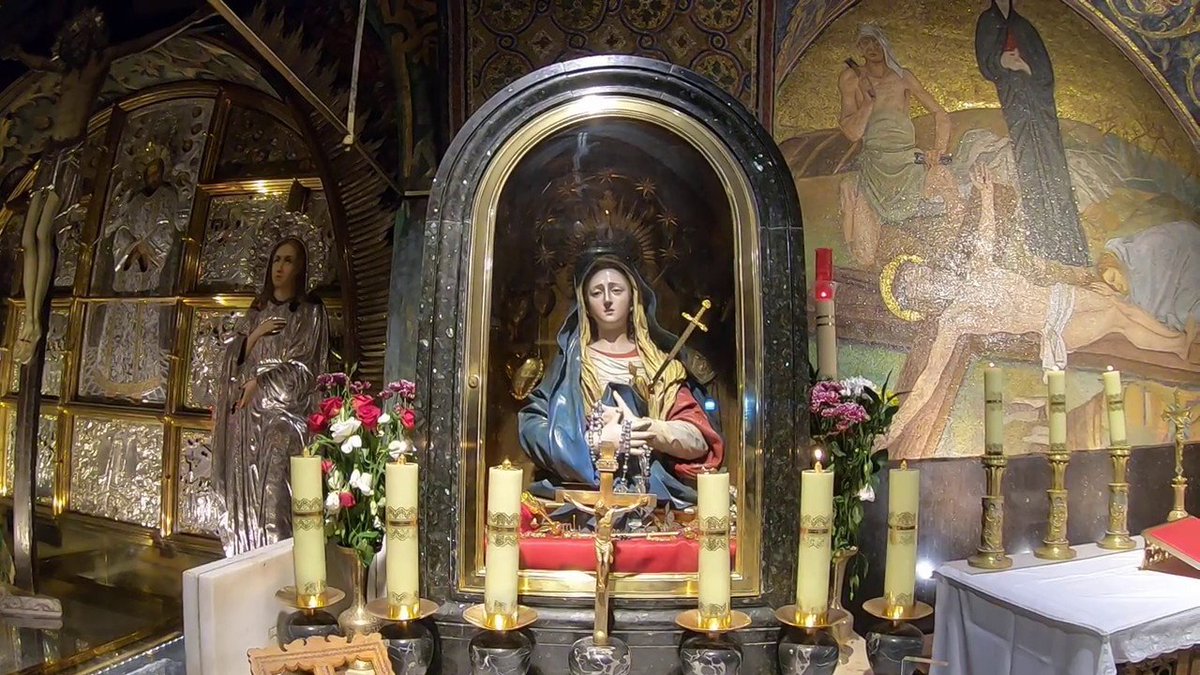The only way for the modern Catholic Church to survive within our progressive culture is if the church becomes more inclusive, moves away from its antiquated ideology and begins valuing the opinions and rights of everyone. Pope Francis is growing increasingly aware of the necessity of a more inclusive and progressive future for the church as he reformed the Vatican Summit, the Synod on Synodality. The current Synod, a summit to discuss the church’s future, is of particular importance as it will give bishops and, for the first time, non-ordained people and women voting power. A move towards an inclusive Synod where diverse voices will be heard is a beneficial step in the right direction towards a future Catholic Church that values the lives and rights of everyone equally.
In its current state, the Catholic Church remains rooted in its exclusionary attitude that continues to dissuade current and potential members from cherishing and celebrating their faith, especially in the United States. Issues of abortion, gay marriage and womens’ role in religion continue to be neglected by the Catholic Church, and allowing for the status quo to remain the same has left today’s youth disenchanted with the teachings of the Catholic Church. Instead of being a moral compass on how to create a more peaceful society, the antiquated nature of many moral decrees has turned people against each other. When a moral compass such as the Catholic Church is needed the most, it fails to promote the dogma it was founded upon. It becomes increasingly difficult to find value in an institution that preaches peace and love but can, at times, promote the opposite. For the sake of the Catholic Church’s survival, they must begin amending their conservative stance on many issues that today’s youth deeply care about.
The Catholic Church is aware that it must not lag, or it will become an institution of the past. In his opening address, Pope Francis stated, “[the church] must ever look to the present, to the new conditions and new forms of life introduced into the modern world which have opened new avenues to the catholic apostolate.” Radical change to the institutions of the Catholic Church is approaching, and this current Synod is emblematic of Pope Francis’s desire and understanding that the church must modernize to include those who are too frequently excluded. We live in a world full of people with different backgrounds, ethnicities, sexual orientations and cultures who all deserve to be cherished in the Catholic Church but can also provide immense value to the church’s goals with their various perspectives on life.
To continue basing the framework of a global moral institution off of the oppressive cultural values in the past neglects the New Testament scriptures where “the church prays and hopes for spiritual and systemic change.” Scriptures throughout the Old and New Testament acknowledge that humanity is an imperfect species and will always have to continue striving to create a more just, equitable and caring world. Certain aspects of the moral framework of the Catholic Church can be considered antiquated and unjust. That is okay; it is not an offense to the word of God or the teachings of Jesus. God understands that we are an imperfect species and knows that we will always be reconciling with our injustices and attempt to create a more just society. What matters is our ability to depart from exclusionary beliefs and values and always continue moving, in lockstep together, toward a Catholic Church that promotes justice and love. The Catholic Church must acknowledge its wrongs, especially against women and the LGBTQ+ community, and move to include these groups to counter oppression and create space for justice productively.
Progressive change to become more inclusive is not an indictment against the Catholic Church; rather, it brings life into an institution that is growing stagnant and losing its moral influence over younger generations. If the Catholic Church can become a progressive church and work to drop its antiquated values, it can shift from a church that excludes back to a church that provides hope and guidelines to achieve a world of love, kindness and respect. In a world that is growing increasingly uncertain with war, global pandemics and economic tumult and slowly losing its moral compass, the Catholic Church can be a solution. It just needs to get out of its own way and step beyond a conservative mindset that has not evolved alongside society to include everyone because we all deserve to be part of God’s community. This current Synod is the right first step towards the new future of the Catholic Church where, in the words of Pope Francis “tutti, tutti, tutti” — everyone, everyone, everyone — must be allowed to be part of the church.
Luca Amaturo, FCRH ’26, is a communications & media studies major from Marlboro, N.J.










































































































































































































Patrick Cullinan • Oct 27, 2023 at 2:36 pm
“In its current state, the Catholic Church remains rooted in its exclusionary attitude that continues to dissuade current and potential members from cherishing and celebrating their faith, especially in the United States.”
Well, why should judge the church on the U.S.’s standard? Abortion “rights,” gender ideology, and feminism may be important to people of North America and western Europe, but should we not also consider the perspectives of those in Africa, Asia, the Middle East, South America, and eastern Europe?
For what it’s worth, I think the sexual and political values which the United States advocate (on the left and the right) are shallow, selfish, and usually idolatrous. If the Church is to change, I’d rather the movement be led by Catholics from someplace else.